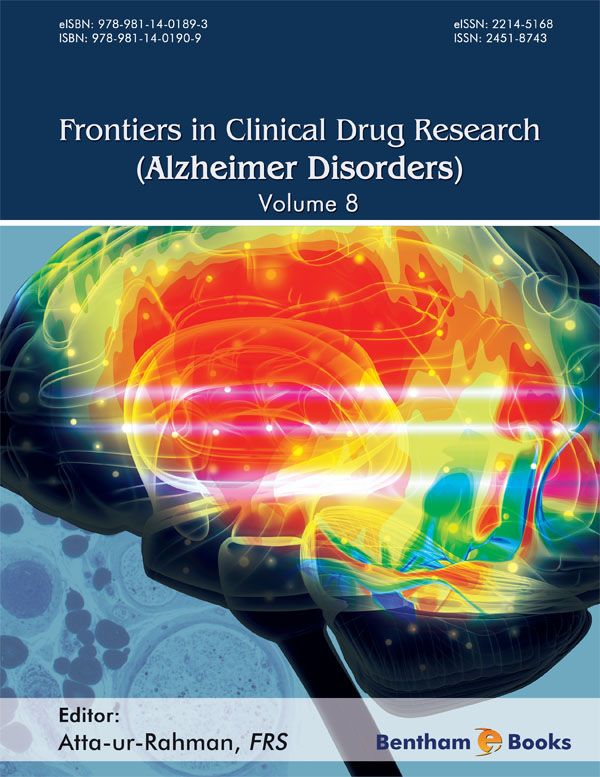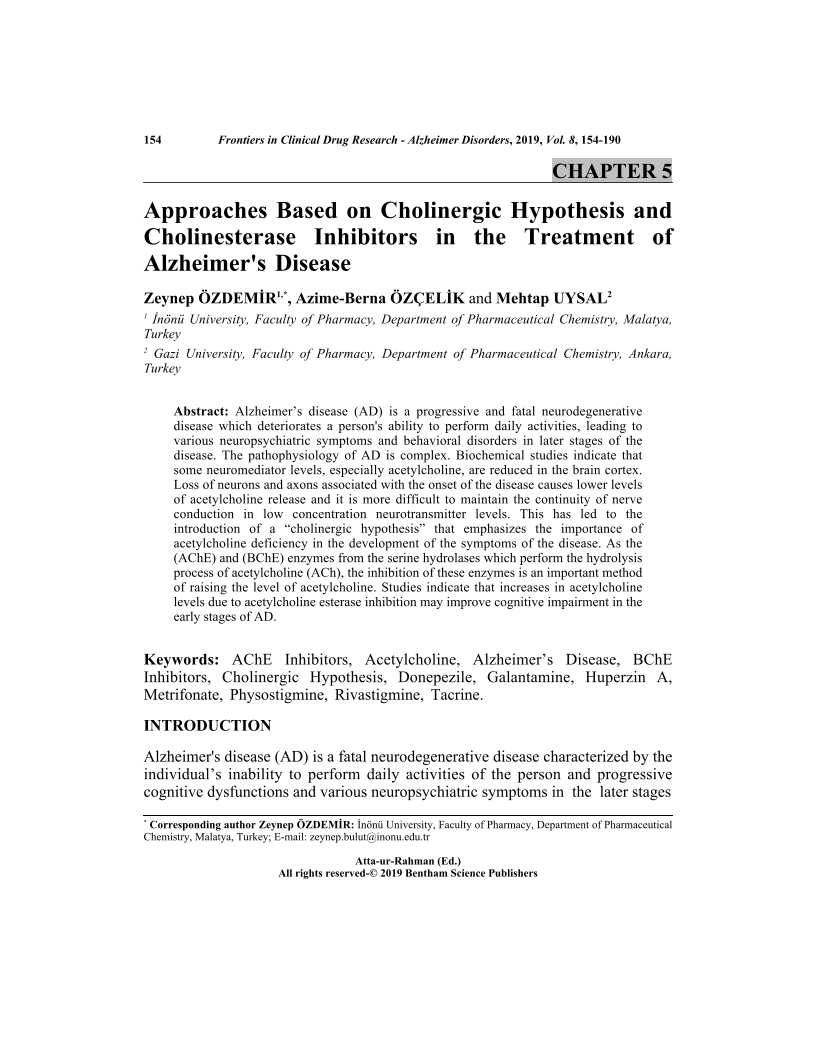Approaches Based on Cholinergic Hypothesis and Cholinesterase Inhibitors in the Treatment of Alzheimer's Disease

- Authors: Zeynep Ozdemir1, Azime Berna Ozcelik2, Mehtap Uysal3
-
View Affiliations Hide Affiliations1 Inonu University, Faculty of Pharmacy, Department of Pharmaceutical Chemistry, Malatya, Turkey. 2 Inonu University, Faculty of Pharmacy, Department of Pharmaceutical Chemistry, Malatya, Turkey. 3 Inonu University, Faculty of Pharmacy, Department of Pharmaceutical Chemistry, Malatya, Turkey.
- Source: Frontiers in Clinical Drug Research - Alzheimer Disorders: Volume 8 , pp 154-190
- Publication Date: February 2019
- Language: English
Approaches Based on Cholinergic Hypothesis and Cholinesterase Inhibitors in the Treatment of Alzheimer's Disease, Page 1 of 1
< Previous page | Next page > /docserver/preview/fulltext/9789811401893/chapter-5-1.gif
Alzheimer's disease (AD) is a progressive and fatal neurodegenerative disease which deteriorates a person's ability to perform daily activities, leading to various neuropsychiatric symptoms and behavioral disorders in later stages of the disease. The pathophysiology of AD is complex. Biochemical studies indicate that some neuromediator levels, especially acetylcholine, are reduced in the brain cortex. Loss of neurons and axons associated with the onset of the disease causes lower levels of acetylcholine release and it is more difficult to maintain the continuity of nerve conduction in low concentration neurotransmitter levels. This has led to the introduction of a "cholinergic hypothesis" that emphasizes the importance of acetylcholine deficiency in the development of the symptoms of the disease. As the (AChE) and (BChE) enzymes from the serine hydrolases which perform the hydrolysis process of acetylcholine (ACh), the inhibition of these enzymes is an important method of raising the level of acetylcholine. Studies indicate that increases in acetylcholine levels due to acetylcholine esterase inhibition may improve cognitive impairment in the early stages of AD.
-
From This Site
/content/books/9789811401893.chapter-5dcterms_subject,pub_keyword-contentType:Journal -contentType:Figure -contentType:Table -contentType:SupplementaryData105

